Filter by
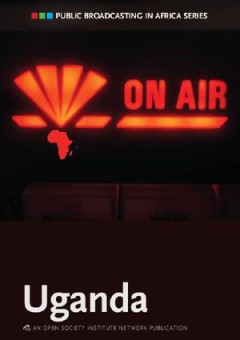
Public Broadcasting in Africa Series: Uganda
Uganda’s broadcast media landscape has witnessed tremendous growth in recent years. While the public broadcaster remains the dominant national player – in terms of reach – in both radio and television, commercial broadcasters have introduced a substantial level of diversity in the industry. Public broadcasting faces serious competition from the numerous private and independent broadcaster…
- Edition
- -
- ISBN/ISSN
- 9781920489717
- Collation
- -
- Series Title
- -
- Call Number
- 302.23 LUG p
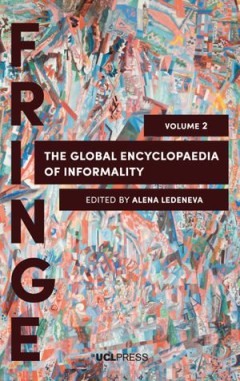
The Global Encyclopaedia of informality, Volume 2
Alena Ledeneva invites you on a voyage of discovery to explore society’s open secrets, unwritten rules and know-how practices. Broadly defined as ‘ways of getting things done’, these invisible yet powerful informal practices tend to escape articulation in official discourse. They include emotion-driven exchanges of gifts or favours and tributes for services, interest-driven know-how (from…
- Edition
- -
- ISBN/ISSN
- 9781787351899
- Collation
- -
- Series Title
- -
- Call Number
- 320.01 GLO g
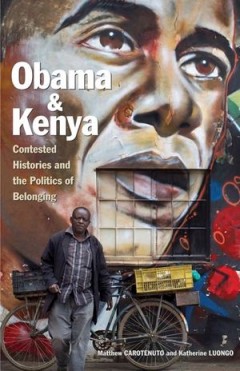
Obama and Kenya: Contested Histories and the Politics of Belonging
Barack Obama’s political ascendancy has focused considerable global attention on the history of Kenya generally and the history of the Luo community particularly. From politicos populating the blogosphere and bookshelves in the U.S and Kenya, to tourists traipsing through Obama’s ancestral home, a variety of groups have mobilized new readings of Kenya’s past in service of their own ends. …
- Edition
- -
- ISBN/ISSN
- 9780896804920
- Collation
- -
- Series Title
- -
- Call Number
- 300
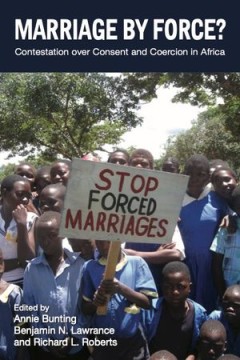
Marriage by Force? Contestation over Consent and Coercion in Africa
With forced marriage, as with so many human rights issues, the sensationalized hides the mundane, and oversimplified popular discourses miss the range of experiences. In sub-Saharan Africa, the relationship between coercion and consent in marriage is a complex one that has changed over time and place, rendering impossible any single interpretation or explanation. The legal experts, anthropol…
- Edition
- -
- ISBN/ISSN
- -
- Collation
- -
- Series Title
- -
- Call Number
- 300

Life After Guns: Reciprocity and Respect among Young Men in Liberia
Life After Guns explores how ex-combatants and other post-war youth negotiated a depleted and difficult social and cultural landscape in the years following Liberia's fourteen-year bloody civil war. Unlike others who study child soldiers, Abby Hardgrove's ethnography looks at both former combatants and also the youth who were not recruited to fight. She focuses on the structural constraints and…
- Edition
- -
- ISBN/ISSN
- 9780813573489
- Collation
- -
- Series Title
- -
- Call Number
- 300
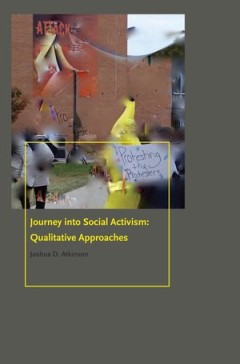
Journey Into Social Activism: Qualitative Approaches
Academic study of social activism and social movements has become increasingly prevalent over the years; this is due in large part to the fact that activists have captured public imagination and gained substantial influence in political discourse. For instance, Occupy Wall Street activists, Tea Party activists, and activists affiliated with the Arab Spring have transformed political debates and…
- Edition
- -
- ISBN/ISSN
- 9780823274130
- Collation
- -
- Series Title
- -
- Call Number
- 300
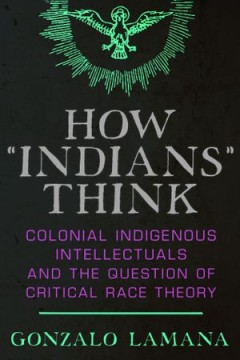
How “Indians” Think: Colonial Indigenous Intellectuals and the Question o…
The conquest and colonization of the Americas marked the beginning of a social, economic, and cultural change of global scale. Most of what we know about how colonial actors understood and theorized this complex historical transformation comes from Spanish sources. This makes the few texts penned by Indigenous intellectuals in colonial times so important: they allow us to see how some of those …
- Edition
- -
- ISBN/ISSN
- 9780816539666
- Collation
- -
- Series Title
- -
- Call Number
- 300
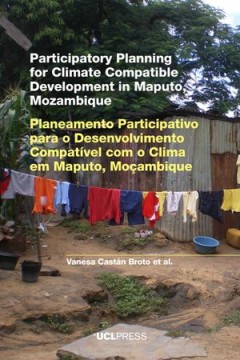
Participatory Planning for Climate Compatible Development in Maputo, Mozambiq…
Participatory Planning for Climate Compatible Development in Maputo, Mozambique is a practitioners’ handbook that builds upon the experience of a pilot project that was awarded the United Nations ‘Lighthouse Activity’ Award. Building upon a long scholarly tradition of participatory planning, this dual-language (English/Portuguese) book addresses crucial questions about the relevance of ci…
- Edition
- -
- ISBN/ISSN
- 9781910634219
- Collation
- -
- Series Title
- -
- Call Number
- 307.2 ALL p
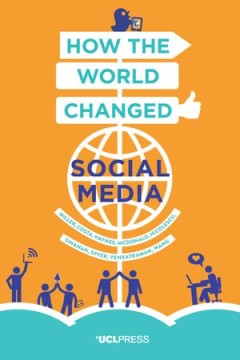
How the World Changed Social Media
How the World Changed Social Media is the first book in Why We Post, a book series that investigates the findings of nine anthropologists who each spent 15 months living in communities across the world. This book offers a comparative analysis summarising the results of the research and exploring the impact of social media on politics and gender, education and commerce. What is the result of the…
- Edition
- -
- ISBN/ISSN
- 9781910634493
- Collation
- -
- Series Title
- -
- Call Number
- 301 SIN s
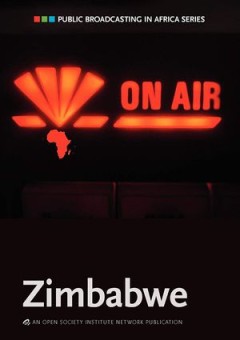
Public Broadcasting in Africa Series: Zimbabwe
This report is the result of research that started in 2008 with the aim of collecting, collating and writing up information about regulation, ownership, access, performance as well as prospects for public broadcasting reform in Africa. The Zimbabwe report is part of an 11-country survey of African broadcast media, evaluating compliance with the agreements, conventions, charters and declarations…
- Edition
- -
- ISBN/ISSN
- 9781920489687
- Collation
- -
- Series Title
- -
- Call Number
- 302.23 CHI p
 Computer Science, Information & General Works
Computer Science, Information & General Works  Philosophy & Psychology
Philosophy & Psychology  Religion
Religion  Social Sciences
Social Sciences  Language
Language  Pure Science
Pure Science  Applied Sciences
Applied Sciences  Art & Recreation
Art & Recreation  Literature
Literature  History & Geography
History & Geography